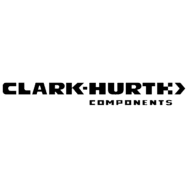Here at K&L Clutch, we’re proud to offer a comprehensive line of torque converters for a broad variety of industries, from some of America’s leading industrial clutch manufacturers, including:
— Twin Disc Torque Converters
— Allison Torque Converters
— Manitowoc Torque Converters
— Clark Torque Converters
But not all converters are the same. For example, let’s take a look at the differences between single-stage torque converters and three-stage torque converters:
Single Stage Torque Converters
The beauty of single-stage converters is their tough, reliable simplicity. Each converter consists basically of three elements: the turbine, the stator, and the impeller. Single-stage converters come in two types of housing “” stationary and rotating. Depending on the model, single-stage torque converters boast a variety of capabilities: Sumpless single-stage converters with PTO drives are ideal for applications with power-shift transmissions and driving auxiliary hydraulic pumps. High-torque ration converters with stationary housing feature extraordinary hoisting and lowering capabilities. Type Four hydraulic converters are designed specifically for the oil and gas industry.
Three Stage Torque Converters
Three-stage torque converters employ three rings of turbine blades, as well as two sets of reactor or stator blades. The effect of this design is increased torque “” up to five times the amount of engine output torque, in fact, when the engine is at a stall. Depending on the specific design, three-stage converters are rated for a range of engines, including 335 hp at 2400 rpm, 420 hp at 2200 rpm, and 580 hp at 2,200 rpm. Three-stage converters also come with both stationary and rotating housing.
At our Hurst, Texas headquarters in the Dallas-Ft. Worth Metroplex, we’ve got torque converters in stock and ready to ship. Contact our specialists for more information.

























